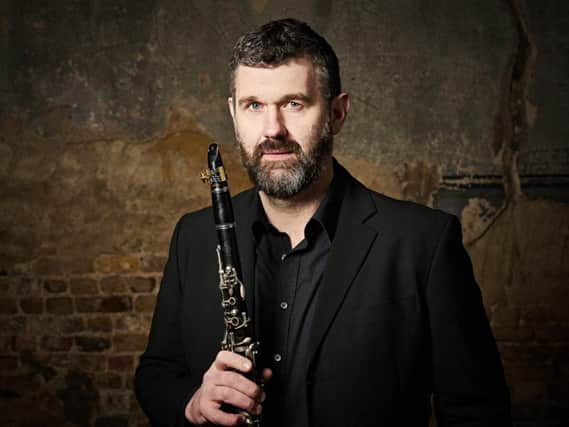Matthew Hunt and friends delight Chichester Chamber Concerts series - review


Matthew Hunt, Alina Ibragimova, Louise Hopkins, and Alasdair Beatson
A spell-binding evening of French masterpieces, played by four virtuosi on clarinet, violin, cello and piano whose technique and musicianship gave us a performance that will never be bettered. It is rare to hear composers so well served that the voices of Debussy, Ravel and Messiaen came straight to the captive listeners without any hindrance. What a privilege to hear such excellence in the service of music.
Advertisement
Hide AdAdvertisement
Hide AdThe capacity audience played their part in stunned admiration, making this an evening to remember for all time. In fact the theme of the concert was Time. The stillness of the short Debussy Rhapsodie for clarinet and piano which opened the concert set the scene, where Matthew Hunt’s beautiful tone and Alasdair Beatson’s frolicsome accompaniment gave us an Impressionist’s view of the world.
This was followed by the Piano Trio by Ravel which plays with Time in the sense that syncopation and uneven bar lengths upset the strict classical rhythms. Here the violinist Alina Ibragimova used her brilliance and grace, offset by the sturdiness of Louise Hopkins’ cello-playing, to captivate us. In the Passacaille movement the repeated 8 bar theme was mercilessly attacked and converted to playfulness.
Messiaen had a completely different view of Time. His Quartet for the End of Time seeks to substitute Time for Eternity. This is difficult for music to achieve because music depends to a large extent on rhythm. The trick that Messiaen uses is first of all to use birdsong, because of course birds are not aware of bars and time signatures. The second device is the extension of melody into an endless stream of sound which has no discernible beginning and end. The pianist has a key role in the second movement with his rainbow chords and we must pay tribute to Alasdair Beatson’s sensitive and impeccable precision which characterises his wonderful playing throughout the programme. He is the anchor and dynamo of the entire ensemble. Even in the “unaccompanied” clarinet solo which is the 3rd movement, the pianist depresses the sustaining pedal so that the inert piano ‘echos’ some of the clarinet’s arpeggios.
After this long and beautifully sustained clarinet solo there is an Interlude in which the whole ensemble lets rip and the audience gets some welcome relief form the intensity of the whole work. Heaven knows what his fellow-prisoners and guards thought about the first performance in 1940; but we must thank the Commandant for supplying Messaien with pencil and paper, a room to practice in, and four instruments.
Advertisement
Hide AdAdvertisement
Hide AdThe intensity resumes in the last three movements with a cello solo of infinite length, beautifully played by Louise Hopkins; then another rumbustious distracting interlude before the final movement. This is a long violin solo with a strong piano accompaniment, and is the climax of the whole extraordinary work. It is here that Alina Ibragimova came into her own and where her immaculate tone, intonation and bow control sustained this long and hushed line of sound into infinity.
Next up in CCC season is the Vision Quartet from Berlin. Their concert is on 28th February at 7.30 in the Assembly Room. Tickets from Chichester Festival Theatre.
Advertisement
Hide AdAdvertisement
Hide AdAdvertisement
Hide AdAdvertisement
Hide Ad